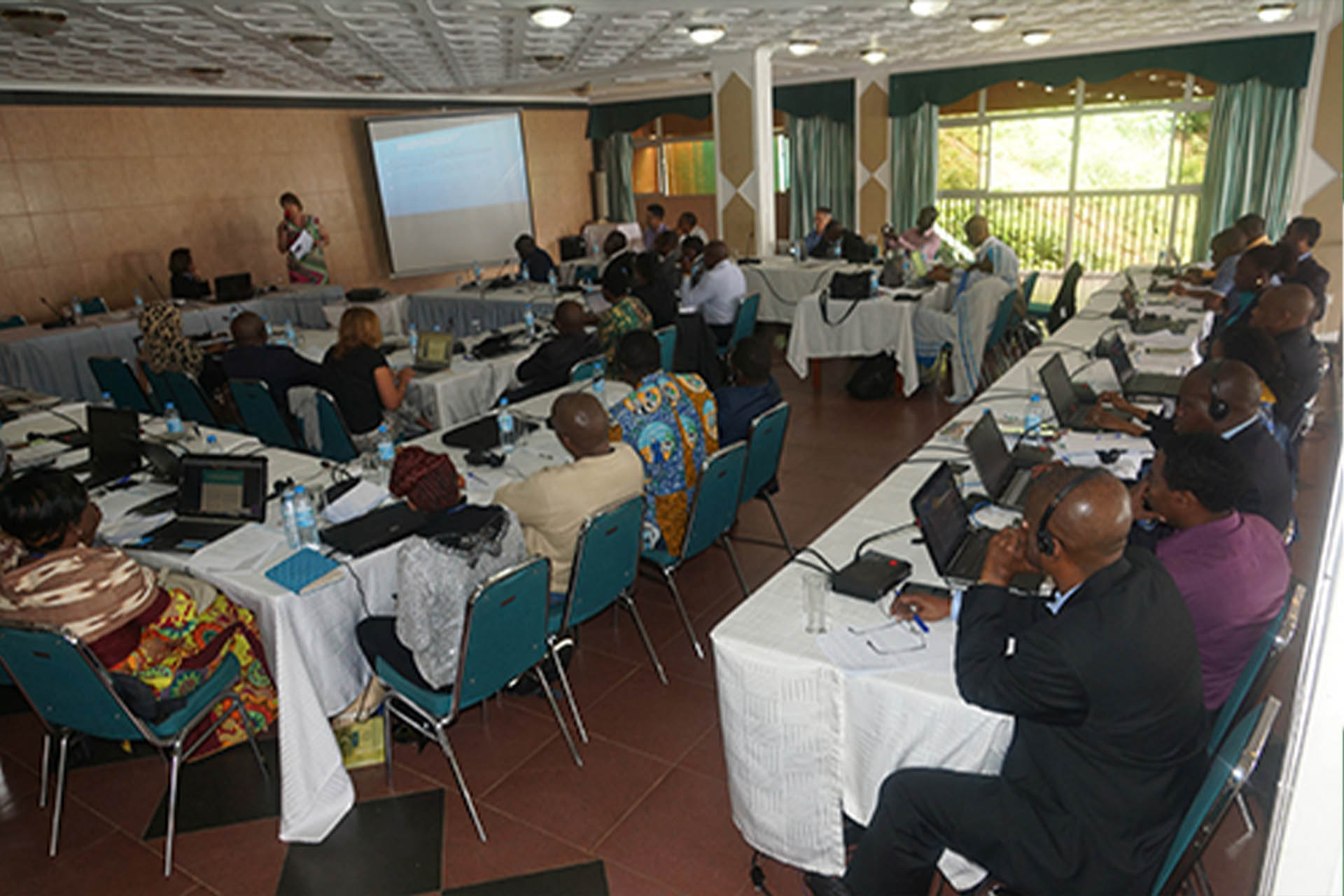 Entebbe (Uganda), 03-08-2015: A three-day Regional Training on International Water Law (IWL) for improved transboundary water management in Africa, organized by Global Water Partnership (GWP) in collaboration with the University of Dundee (UK), Makerere University (Uganda), the Intergovernmental Authority on Development (IGAD) and African Network for Basin Organizations (ANBO), this morning opened in Entebbe, Uganda.
Entebbe (Uganda), 03-08-2015: A three-day Regional Training on International Water Law (IWL) for improved transboundary water management in Africa, organized by Global Water Partnership (GWP) in collaboration with the University of Dundee (UK), Makerere University (Uganda), the Intergovernmental Authority on Development (IGAD) and African Network for Basin Organizations (ANBO), this morning opened in Entebbe, Uganda.
IGAD and ANBO work within their own mandates and have developed specific skills on transboundary water in order to assist countries and basin organizations develop effective management of shared water resources in Africa. Makerere University and University of Dundee conduct research and are specialised in international water law and cooperate with governments as well as basin organizations to train staff and strengthen capacities. As a neutral platform, GWP facilitates capacity development and collaboration to build synergies among various stakeholders on integrated approaches to better water resources management.
Within their respective strategies and in the led-up to setting an ambitious pan African capacity building program, the 5 partner institutions have decided to join efforts to organize a training on IWL. The experiences and lessons learnt will be used as a pilot to develop a 5 year, (2016-2020) training program on IWL.
The Regional Training is aimed at strengthening capacities of institutions of countries and basin organizations in Africa in addressing issues related to transboundary water resources management through enhancing knowledge and skills necessary for promoting cooperation among countries. The Training is highly appropriate for those that are engaged in issues of transboundary water resources management specifically water management/development practitioners (not necessarily Lawyers) in positions to advice, and sometimes even make the decisions affecting transboundary water resources.
The primary candidates for this training are mid- to high-level practitioners and professionals from RBOs and governments (i.e. Foreign affairs ministries, ministries in charge of water affairs, legislators, water management agencies, etc.) who have a role in negotiating, drafting or reforming treaties and legislations (regulation, control), planning, decision-making on transboundary waters. The training also considers a limited number of GWP Africa Partners who are in position to contribute with specialised knowledge and experience on water governance in international watercourses.
Participants are drawn from Ethiopia, Kenya, Somalia, Sudan, Uganda, Rwanda, Tanzania, Lesotho, Congo, Cameroon, Gambia, Chad, Malawi, Burkina Faso, Nigeria, Sierra Leone, and Botswana.

This was very enlightening. Watch wontumi tv live streaming now — Ghanaian TV with sports and news. works great on mobile and desktop. program schedule, news bulletins. Including live now. HD streaming with low latency.